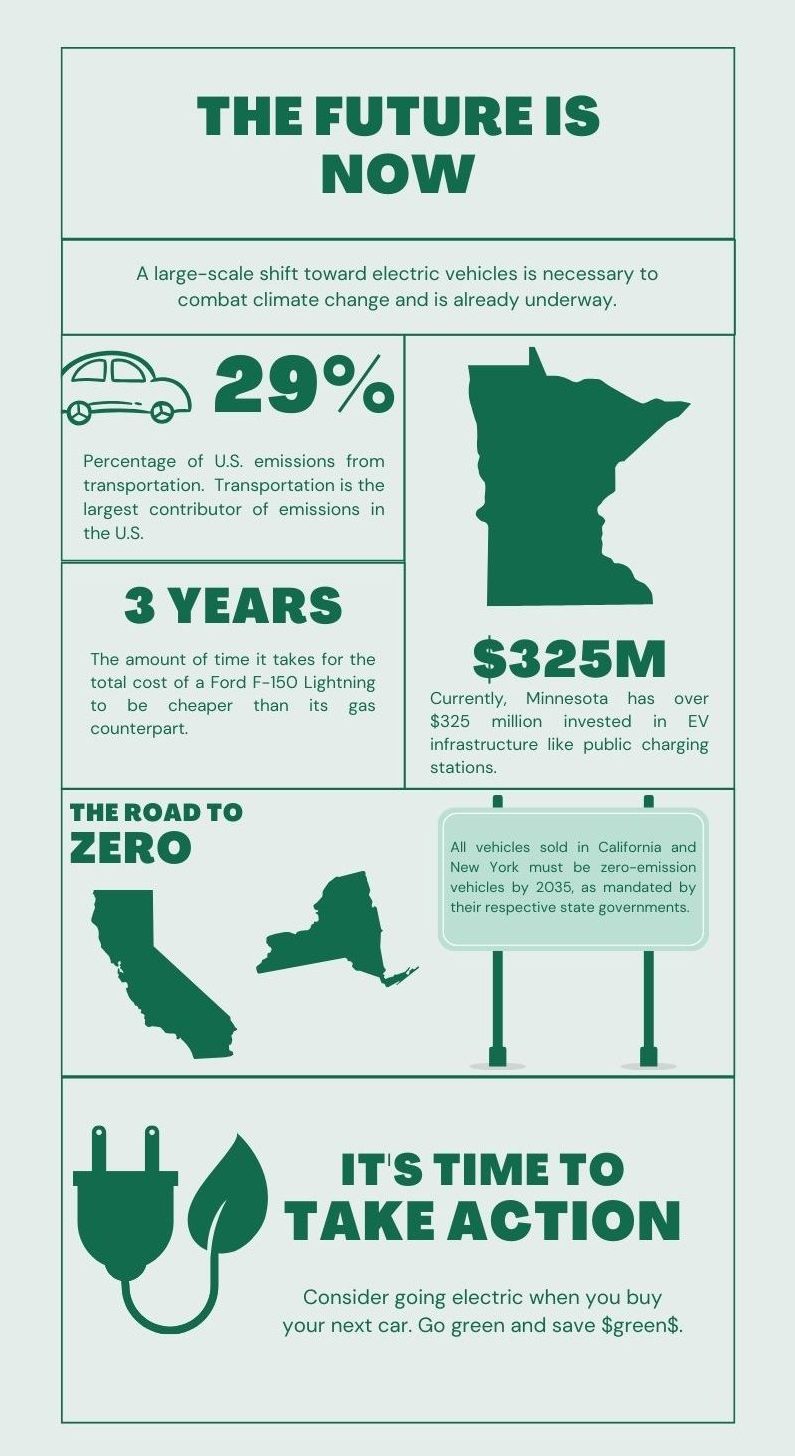Electric vehicles are continuing to break barriers. As they rise in popularity, they also become increasingly present in mainstream media. According to Protocol, by 2040, electric vehicles could account for nearly all new car sales.
But why are electric vehicles such a big deal? Most people have seen the hype on social media about the Tesla Cybertruck or advertisements for lines of electric vehicles like the Hyundai Ioniq, Nissan Leaf, or BMW i series. What all of these companies have in common is rooted in two things: a desire for a more sustainable vehicle industry and a desire to appeal to sustainably minded customers, who are clearly growing in numbers.

Regardless of the reason, electric vehicles are quickly being accepted by the car-making industry, governments, and the public. For example, all vehicles sold in California and New York must be zero-emission vehicles by 2035, as mandated by their respective state governments. A similar mandate exists in the European Union as well.
Minnesota is right there in the mix — no surprise considering the state’s progressive reputation. In fact, Minnesota is “the leading state in the Midwest” according to Peter Huether, a senior research associate at the American Council for an Energy-Efficient Economy. ACEEE recently ranked Minnesota the 17th best state for encouraging the widespread use of electric vehicles. Currently, Minnesota has over $325 million invested in EV infrastructure like public charging stations.
Still, the era of the EV is in its relatively early stages. What it all boils down to is the consumer. While gas-powered cars are still being produced in large numbers, many people are choosing not to buy electric vehicles because they are more expensive. And these skeptics have a point.
According to a study by U.S. News, the average price of an electric vehicle was about $12,000 more than the average price of a gas vehicle in mid-2023. These numbers are scary for consumers. Yet, there’s more to the story. With electric vehicles, one doesn’t have to pay for gas. And with sky-high gas prices, this notion is becoming more and more appealing to the masses. In general, electric vehicles are already usually cheaper than their gas counterparts in the long run. In the same study, it was predicted that the gap between electric and gas vehicles would decrease significantly or even diminish by early 2024.
This new era did not arise out of a desire for cheaper vehicle use, though, considering the longstanding interdependence of the auto and oil industries. It arose out of rising concern for the health of the planet. According to the Environmental Protection Agency, greenhouse gas emissions from transportation account for about 29% of total U.S. greenhouse gas emissions, making it the largest contributor to emissions in the U.S. A shift towards electric vehicles would be a significant step towards preventing, or at least lessening, what could be irreparable harm from climate change.
The movement is already rolling. With mandates set in place and environmentalism at the forefront of everything from academic research to TikTok and other social media outlets, major change is on the way. Though I would advise readers to buy electric vehicles if they can, because they are cheaper and more sustainable, there won’t be much of a choice in the future. Welcome to the era of electric vehicles.